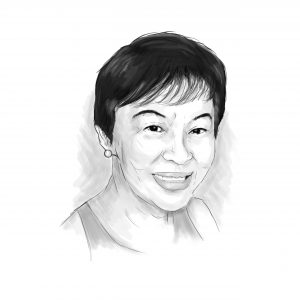MEDIUM RARE

Family bonding, a strong element of Filipino group dynamics, but not every individual chooses to have Family to live and get along with.
There are those who prefer to live alone and seem to be happy doing so, a conscious and deliberate decision. They don’t need Barbra Streisand telling them, “People who need people are the luckiest people. . .”
As Christmas approaches with the speed of light, don’t these confirmed loners and aloners begin to long for the company of parents or elders, siblings, and youngsters whose energy, according to feng shui practice, they need for their ch’i, the breath of life?
During the last several days of holidays and holy days, my thoughts strayed to four ladies who are fiercely independent and would have it no other way. They are in various stages and ages of life, from being single to estranged or as good as divorced, to widowed. They don’t know each other, but their views are, expectedly, similar.
For “Angela,” the best thing about living alone is “I can do anything, eat anything, whenever and however.” The worst is “having no one to share your achievements,” and “when you’re in pain there’s no one to help you.” A few days after she said this, she was hurt by a neighbor’s dog and had to endure a series of anti-rabies shots without anyone to hold her hand in the hospital’s emergency ward.
For “Linda,” living in an apartment by herself “allows you to do anything anytime with no restrictions, it’s being free of social constraints, like worrying what should I wear” even when one’s not expecting visitors.
For “Aida,” living alone is best done in a condo. “Twenty-four-hour security, maintenance, janitorial service.” Condo dwellers like her, she says, “can expect absolute privacy, total control of time and space.” The worst that can happen? “What if you have a medical emergency, you fall down or something like that.”
Angela, Linda, and Aida think cooking takes too much time and preparation, whereas the laundry is best left in the hands of the lavandera.
“Janet” couldn’t cook if her life depended on it. “So I beg for food” from her aunts and sister-in-law.